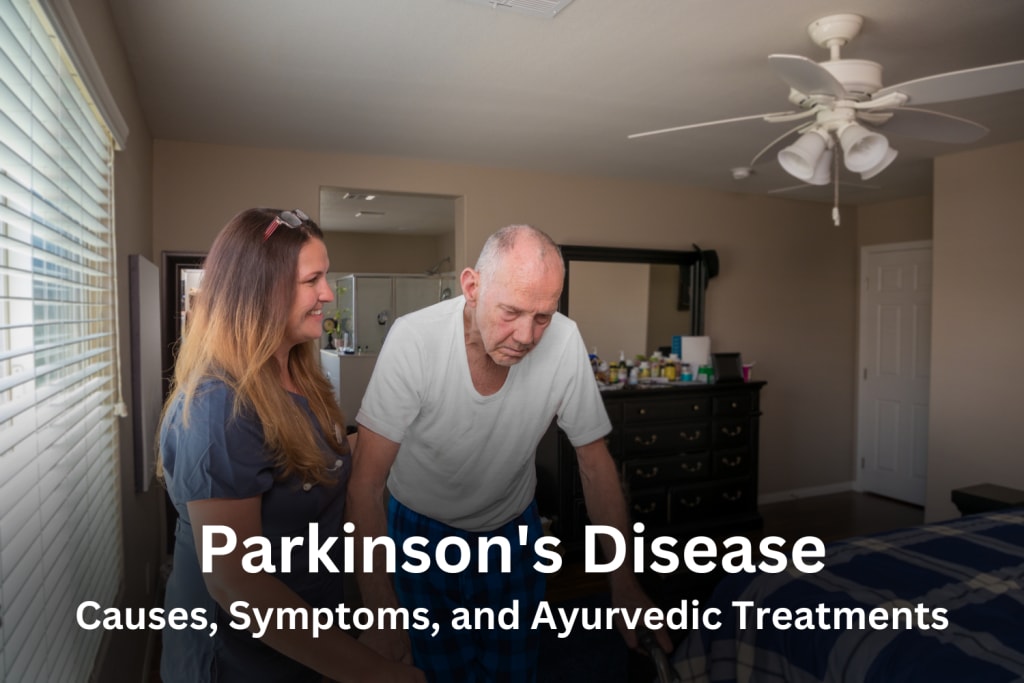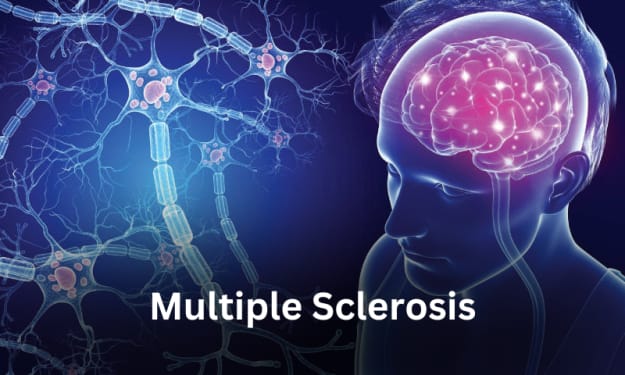Understanding Parkinson's Disease: Causes, Symptoms, Risk Factors and Treatment
Parkinson's Treatment through Ayurveda

Parkinson's disease is a degenerative condition of the central nervous system that affects the movement system and lasts for a long time. The disease makes it hard to control your muscles and move your body because it slowly breaks down the nerve pathways at the base of the brain. When this condition worsens, the person loses control of their body movements and shakes or shivers while moving. Ayurvedic treatment is recommended as the best way to treat Parkinson's disease.
Parkinson's disease causes
- Genetic mutation
- Environmental factors
- Gender
- Low dopamine levels
- Age
- Head injuries
Symptoms of Parkinson's disease
- Tremors
- Rigid muscles
- Slowed movement
- Speech changes
- Writing changes
- Problems with balance
- Depression and anxiety.
Risk factors for Parkinson's disease
- Age
- Family History
- Gender
- Toxins
- Head Injury
Ayurvedic treatment for Parkinson's
Ayurvedic treatment for Parkinson's disease can effectively relieve symptoms and improve the neurological system. They focus on preventing further deterioration and gradually increasing movement speed rather than curing the disease.
In Ayurveda, Parkinson's disease is thought to be a Vata problem. Vata instability can happen in our bodies when we are stressed, don't get enough sleep, or eat bad food. These things are bad for Apana Vayu. So, the vayu doesn't leave the body. Instead, it goes back into the bloodstream. This also makes you have trouble going to the toilet, which is one of the main signs of Parkinson's disease.
Types
- Dhatukshayajanya - loss or damage of important tissue
- Margavrodhjanya: The right flow of energy and nutrients through their pathways is blocked.
The ways to treat the two different kinds of vatavyadhi are entirely different.
The doctor's plan for treating a patient with Parkinson's disease depends on what kind of vatavyadhi is present and the patient's lakshanas, samprapti, and other factors.
Ayurvedic treatments for Parkinson's disease are,
- Snehana
- Swedana
- Vasti
This disease is not easy to treat; Parkinson's can be treated with one or more panchakarma chikitsa in ayurveda, medicines made from carefully chosen herbs and minerals, healthy food, and a healthy way of life. On the other hand, following these suggestions will ease physical symptoms and help you understand how mental factors add to the disease.
- Shodhana Chikitsa: it depends on how sick the person is and how strong they are. Biocleansing treatments should be used first.
- Panchakarma: Herbal medicines that only work on tremors are used depending on the situation. Herbal nerve tonics are used to ease stiffness and feed the nervous system.
- Yoga or meditation: focuses on getting rid of symptoms, controlling energy, relaxing, and lowering stress or worry.
- Diet: Advice on how to improve digestion has a direct effect on how well the drugs and treatments work.
The goal of Ayurvedic care for Parkinson's disease is to bring the mind, body, and soul back into a healthy balance by balancing the disturbed dosha. This could mean, depending on the signs:
- If you have trouble digesting, you can use mild herbal laxatives to clean out your gut.
- Enemas and massages with strong oils are also good.
- Use nerve tonics made from herbs to get rid of pain and feed the nervous system.
- Herbal treatments for depression
- Diet tips to help the body's nervous, digestive, and mental systems
- Yoga and meditation help people get rid of symptoms, control their own energies, relax, and feel less stressed or anxious.
Other treatment options for Parkinson's disease
Levodopa, which raises dopamine levels, is the most popular drug to treat Parkinson's in modern medicine. Some of the side effects of these medicines can be very bad. Also, the dose will have to get bigger over time. When symptoms worsen, the best option is DBS (Deep Brain Stimulation) surgery. However, this is a complex brain surgery that needs expert doctors and facilities.
About the Creator
Enjoyed the story? Support the Creator.
Subscribe for free to receive all their stories in your feed. You could also pledge your support or give them a one-off tip, letting them know you appreciate their work.





Comments
There are no comments for this story
Be the first to respond and start the conversation.